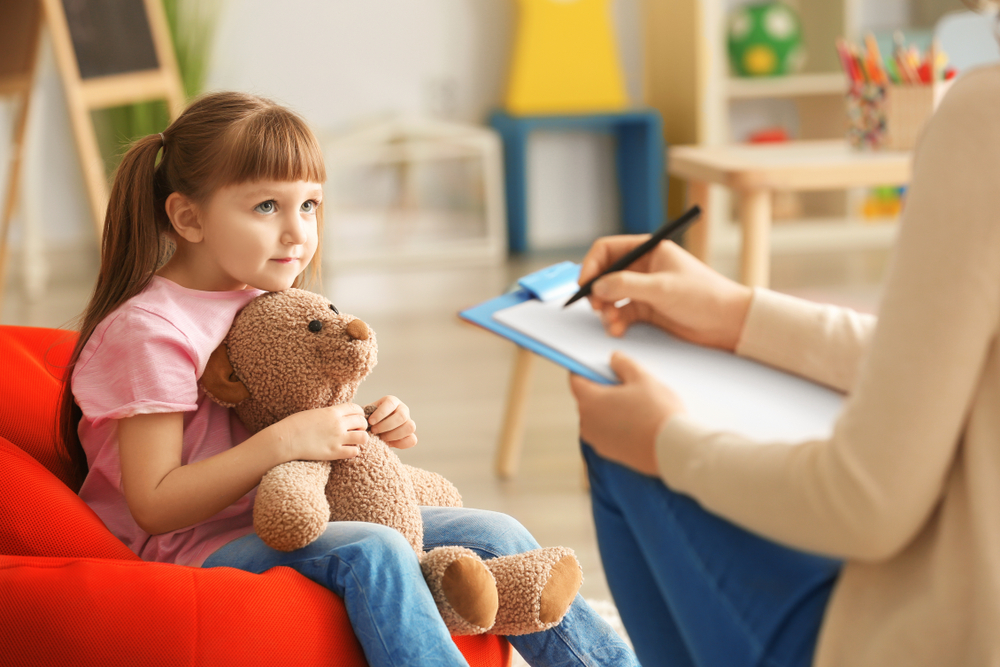Professional Child Psychology
Mental illness is difficult to deal with no matter what age you are. However, for children, dealing with mental illness can be particularly difficult. From the perspective of adulthood, childhood is often perceived as a time of simplicity and low-stress. However, research has shown that for many kids, this simply isn’t the case.
It’s never easy for parents to watch their child struggle and yet it can feel like a really big step to bring your child to see a therapist. Our practitioners understand this and will not only be working with your child in their therapy sessions to help them learn ways of managing their tricky thoughts and feelings and processing the difficulties they’re facing, they will also provide you with guidance and suggestions as to how you can support your child at home.
What are the benefits of seeing a child psychologist?
If your child is struggling with mental health difficulties, choosing a therapist with experience working with children is one of the best ways to ensure they get the help they need. A child psychologist:

Would you like to know more about Child Psychology?
Please complete our new enquiry form and we will contact you to make booking arrangements.
What you should know about mental illness in children
It’s important to understand that a child’s understanding of the world, as well as their problem-solving and communication skills, are still forming – which makes common issues such as bullying and academic difficulties incredibly hard to deal with. For many children, symptoms of mental illness can disguise themselves as common childhood issues such as bad behaviour and mood swings. This can make recognising mental health issues more difficult for parents. However, it’s important to know the signs and symptoms of mental illness so you can get your child the help they need as soon as possible.
Common mental health issues affecting children
You may be surprised to learn that kids are susceptible to the same kinds of mental health problems that adults face. The most common conditions include depression, anxiety, attachment issues, Attention-deficit Hyperactivity Disorder [ADHD], Obsessive-Compulsive Disorder [OCD] and eating disorders.
Signs that your child may be living with mental illness include:
What can cause mental health issues in kids?
There are many reasons why your child may be experiencing mental health issues. Genetic factors – such as a history of mental illness in the family – are quite common as this can make children more vulnerable to mental health concerns. In addition to this, the family environment and experiences of suffering can also trigger mood disorders in children. If your child is or has been exposed to domestic violence, family dysfunction, divorce or major trauma of any kind, this can have an impact on their overall wellbeing.
How can mental illness affect your child’s life?
On a personal level, affected children may act out, withdraw themselves from social activities or use self-harm in order to cope with their feelings. It is also common for a child’s education to be compromised, as they can become disinterested or unmotivated when it comes to school.
While your child may be the only member of your family with a mental illness at first, it’s true that ongoing issues can have a lasting effect on the family dynamic. It’s common for this situation to cause conflict between parents, to make other children in the family to feel neglected or to even trigger mental illness in those who are living with or caring for the affected child.
As you can see, there are mental illness affects virtually every aspect of a child’s and their family’s life. This is why it’s crucial to seek help as soon as possible, as mental illness left untreated will simply continue to get worse over time.
Would you like to know more about Child Psychology?
Please complete our new enquiry form and we will contact you to make booking arrangements.
Understanding parent child counselling
Parent-child counselling recognises that parenting a child with mental illness can be tough, and seeks to provide support to both child and parent to help them cope. Parenting psychologists will not only work with children to understand the thoughts, feelings and experiences that are affecting them but provides management techniques that parents can use in day-to-day life.
Here at Perth Psychology Collective, we offer a wide range of mental health services for children and adults, including Play Therapy and parent-child counselling. The techniques taught by our parenting psychologists include how to encourage positive behaviour, how to understand the emotional needs of a vulnerable child and how to manage difficult or undesirable behaviour.
If you believe that your child may be suffering from a mental illness, it’s important to get them professional help sooner rather than later. Here at Perth Psychology Collective, we are committed to helping children from the age of 8 years and up manage and overcome their mental health difficulties so they can go on to lead healthy, happy lives.









